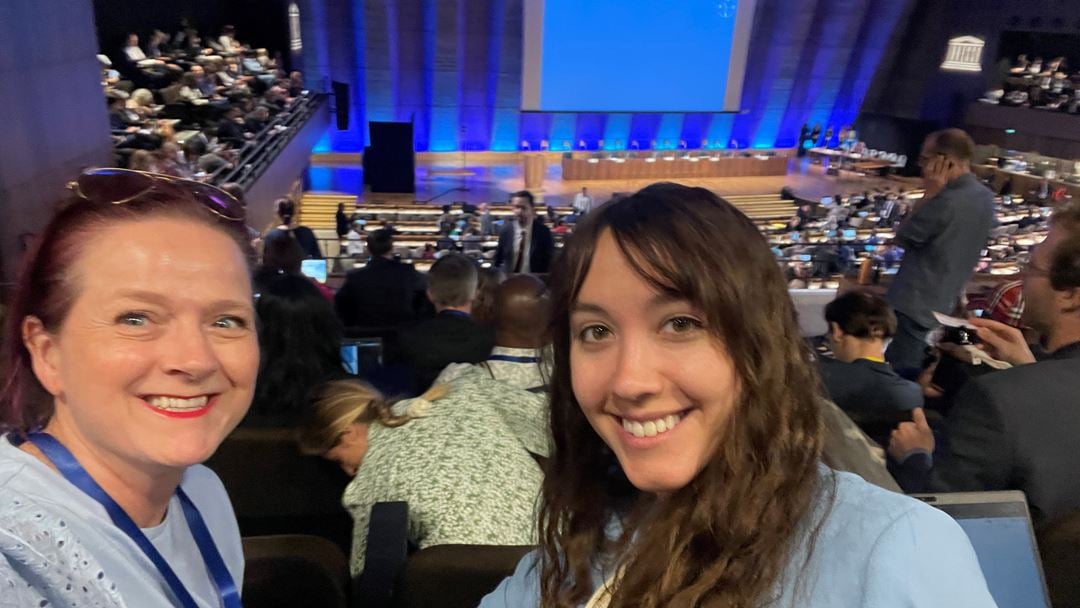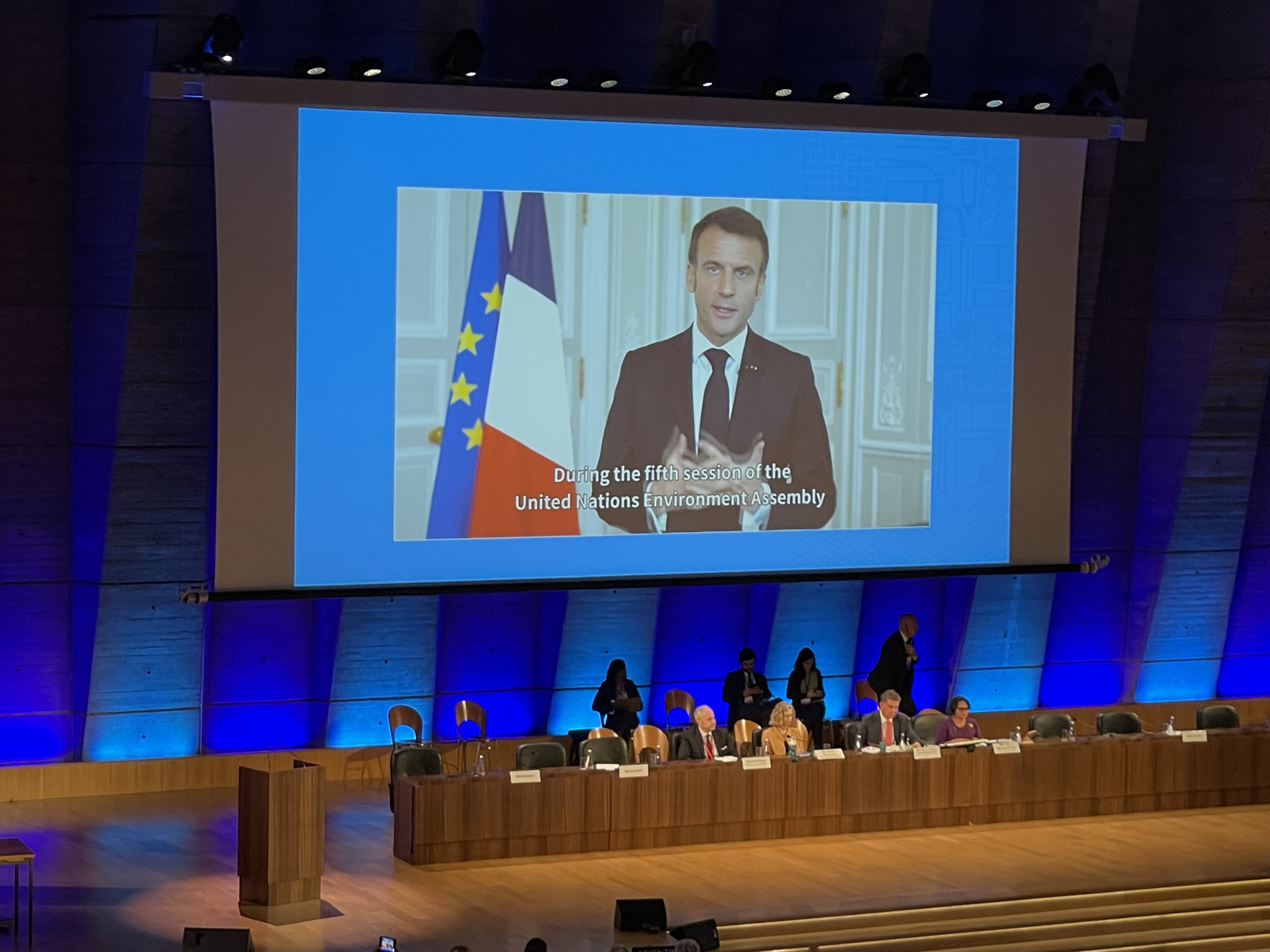Everybody wants to RULE the [plastics] world
Discussions from the second day of the Second Session of the Intergovernmental Negotiating Committee (INC-2) on a potential treaty to end plastic pollution

Authors: Emily Cowan and Rachel Tiller
On May 30th, 2023, the negotiations are still ongoing for the potential global treaty to end plastic pollution. On this second day at the UNESCO building in Paris – similar to the first day, plastics are on everyone's minds but nobody's tongues in the negotiation room. A major divergence among delegations has been expressed clearly throughout the day like yesterday. Rule 38 is on everyone's mind. This rule is on the matter of once negotiations begin that the goal should be to obtain a consensus and if that cannot happen with the full commitment of all member states - a 2/3rds majority vote of those present and voting can instead help to move negotiations forward. Rule 38 from the draft rules of procedure has been at the forefront of the last two days of discussion. Why? Because this was not resolved during INC1 – where it had also been an issue of contention.

Today the intended plan from the Chair of the INC was to move forward towards establishing two contact groups whose goal would be to work on substantive matters on what the future plastics treaty could contain. This would start from the Potential Options paper developed by the United Nations Environmental Assembly in the lead-up to INC2. It includes possible core obligations of the future treaty that could be discussed during INC2 such as phasing out, banning, and designing for circularity, as well as means of implantation such as financial assistance, capacity building, and National Action Plans.

This didn’t happen though. After the morning session, there was still no conclusion on the adoption of the Rules of Procedure, so an open ending consultation took place to discuss both Rules 37 and 38. This consultation was co-facilitated by delegates from Japan and Uruguay, and they met for two hours during lunch. For a moment, though, the room almost thought there had been a plot twist when Micronesia asked if the Chair was considering using precisely rule 38 as a solution to resolve the issue of not reaching consensus on it by calling for a vote – something the Chair chose not to answer. Even before starting the informal consultation though, multiple member states, including India, China, and Saudi Arabia were calling for points of clarifications on what would happen after the conclusion of these informal discussions.
As the plenary session was resumed two hours delayed in the afternoon, it soon became clear that there was still no consensus. In fact, the chairs of the informal consultation could inform that they had come up with 7 (!) options for rule 38. Furthermore, some states were refusing to proceed to substantive issues until this issue was resolved, effectively hijacking the negotiations. The middle ground may be within sight though. The Brazilian delegate suggested the plenary recessed for a few minutes so that some of the delegations could have an informal sidebar session with the opposing member states to try to move towards Agenda Item 4 on substantive issues – moving closer to preparing the draft treaty text.
After waiting over one and a half hours for a planned 15-minute side discussion the session resumed with a plea from Mexico that: "We need to take advantage of taxpayers money - we are all here using our time and need to be as constructive as possible - we will support you in any way we can to move forward." This was followed by a plea to begin moving into contact groups and substantial discussions this evening. A short minute later the Chair took the floor again and agreed to continue the informal discussions on finalizing the draft rules of procedure issues on rule 38 which will take place at 20:30 sharp.
Tomorrow will begin with the outcome of these discussions. Maybe we can then move to plastics?
